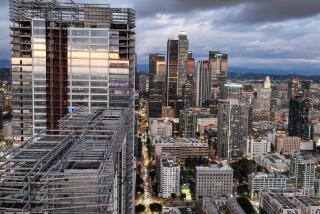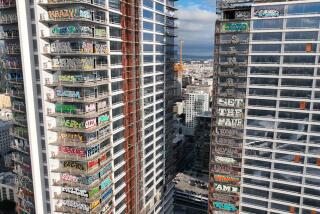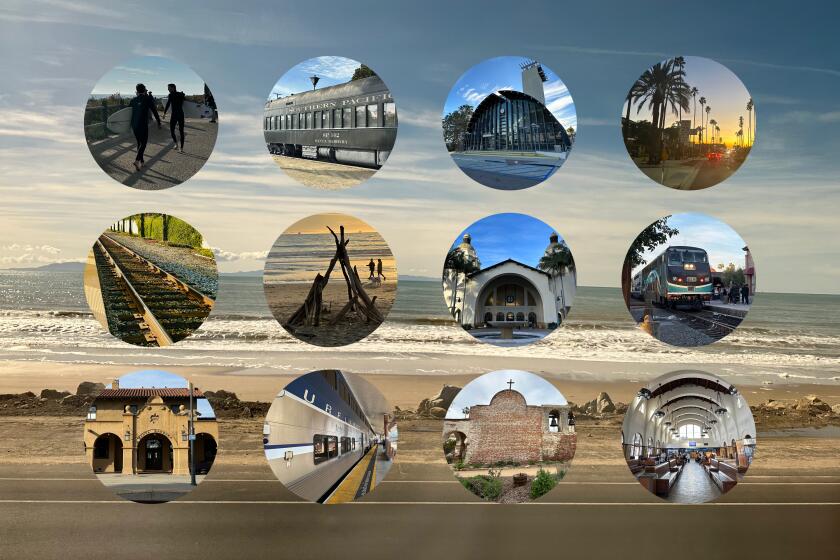In San Diego and beyond: four old jails to explore, stay the night in
Just in time for prime shopping season, San Diego’s longtime police station has been reborn as an upscall mall known as the Headquarters at Seaport District. It opened Nov. 18 near the downtown waterfront.
The complex, a mix of Spanish and Mission Revival styles, was built in 1939 with a jail, five courtrooms, an indoor shooting range, a law library and a big garage. The police moved out in the late 1980s, and the site stood idle for years while the tourists flocked to the tourist-friendly Seaport Village shopping area next door.
Nowadays it’s Seaport Village that seems less compelling while the Headquarters stands tall, freshly groomed and eager to please. Its restaurants include a Pizzeria Mozza, Eddie V’s (steak and seafood); Puesto (Mexican street food); and Bruxie, a sandwich spot that uses Belgian waffles instead of bread. Shops include a fancy cheese place (Venissimo Cheese), a fancy toy place (Geppetto’s) and Kitson, the upscale retailer that made its name catering to celebrities on L.A.’s Westisde.
And yes, the redevelopers saved eight old jail cells and left them open “for your Instagram pleasure,” as Karla Peterson wrote recently in U-T San Diego.
The San Diego mall doesn’t include a hotel, but all around the world former lockups are now serving high-end travelers. For instance:
In the central Old City of Istanbul, the Four Seasons Hotel at Sultanahmet is a luxe lodging with 65 rooms and suites in a 19th-century building that held a Turkish prison from 1919 until the 1980s. It was reborn as a hotel with courtyard and gardens in 1996.
In Boston, Liberty Hotel stands on Beacon Hill in an 1851 building that served as the Charles Street Jail for nearly 140 years. It closed in 1990 and reopened as a 300-room luxury hotel in 2007. The main building has eight sides, a 90-foot-high atrium and five restaurants.
In Prague, the prison that once held statesman-playwright Vaclav Havel is now the Unitas Hotel. The building complex at 9 Bartolomejska Street, which dates to the 18th century, was a convent in 1950 when the Czech Secret Police overran the property, packed the nuns off to detention camp elsewhere and converted the convent into Secret Police Headquarters. The church next door became a shooting range.
Over the following years of Soviet domination, the Secret Police interrogated many prisoners there, including Havel, who went on from Cell P6 to become first president of Czechoslovakia (1989-92) and then first president of the Czech Republic (1993-2003). From 1992 to 2006, the property was refashioned as a hostel known as Pension Unitas. Then came a more upscale conversion, and now the Unitas Hotel carries a four-star rating.
More to Read
Sign up for The Wild
We’ll help you find the best places to hike, bike and run, as well as the perfect silent spots for meditation and yoga.
You may occasionally receive promotional content from the Los Angeles Times.







